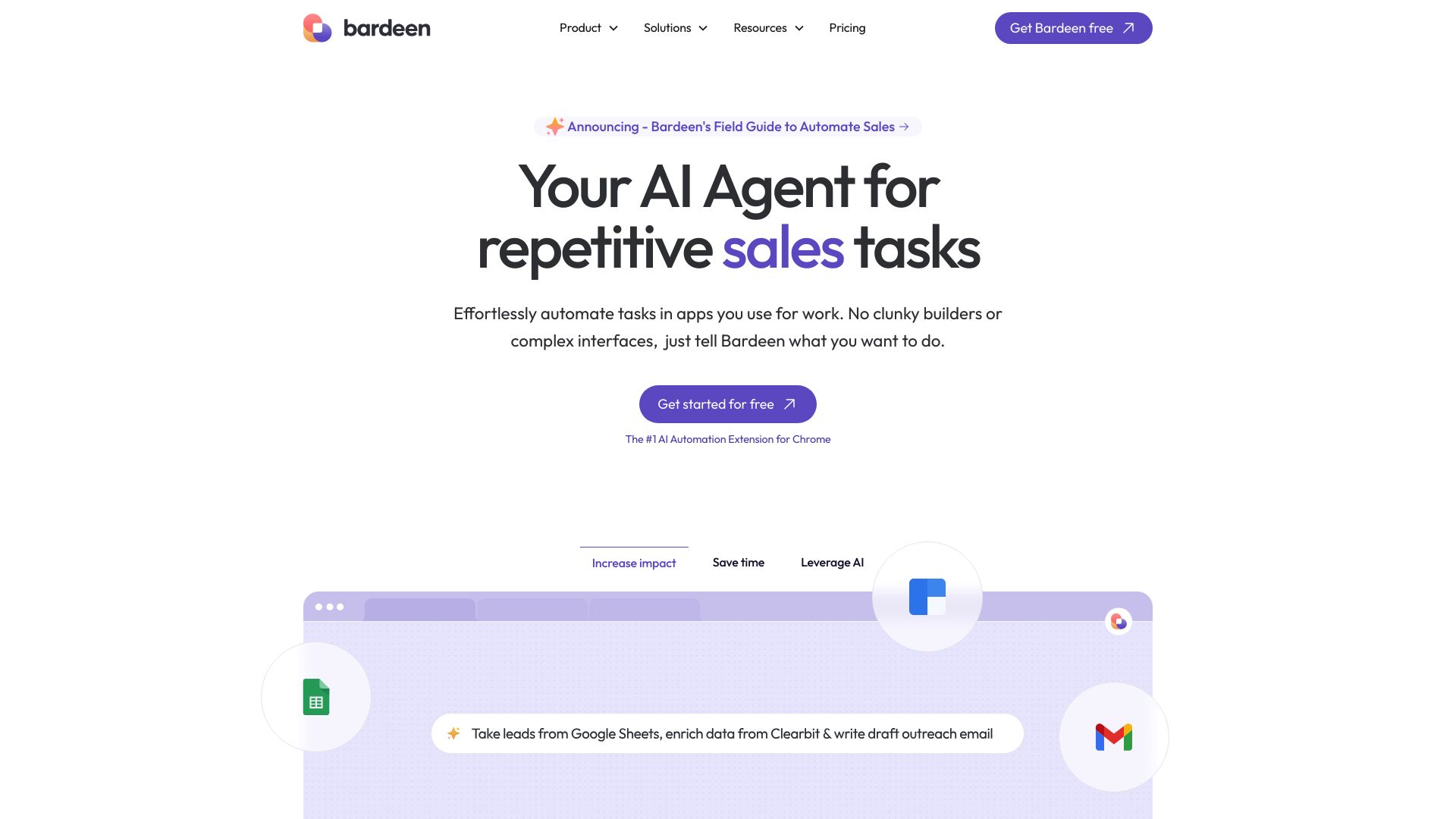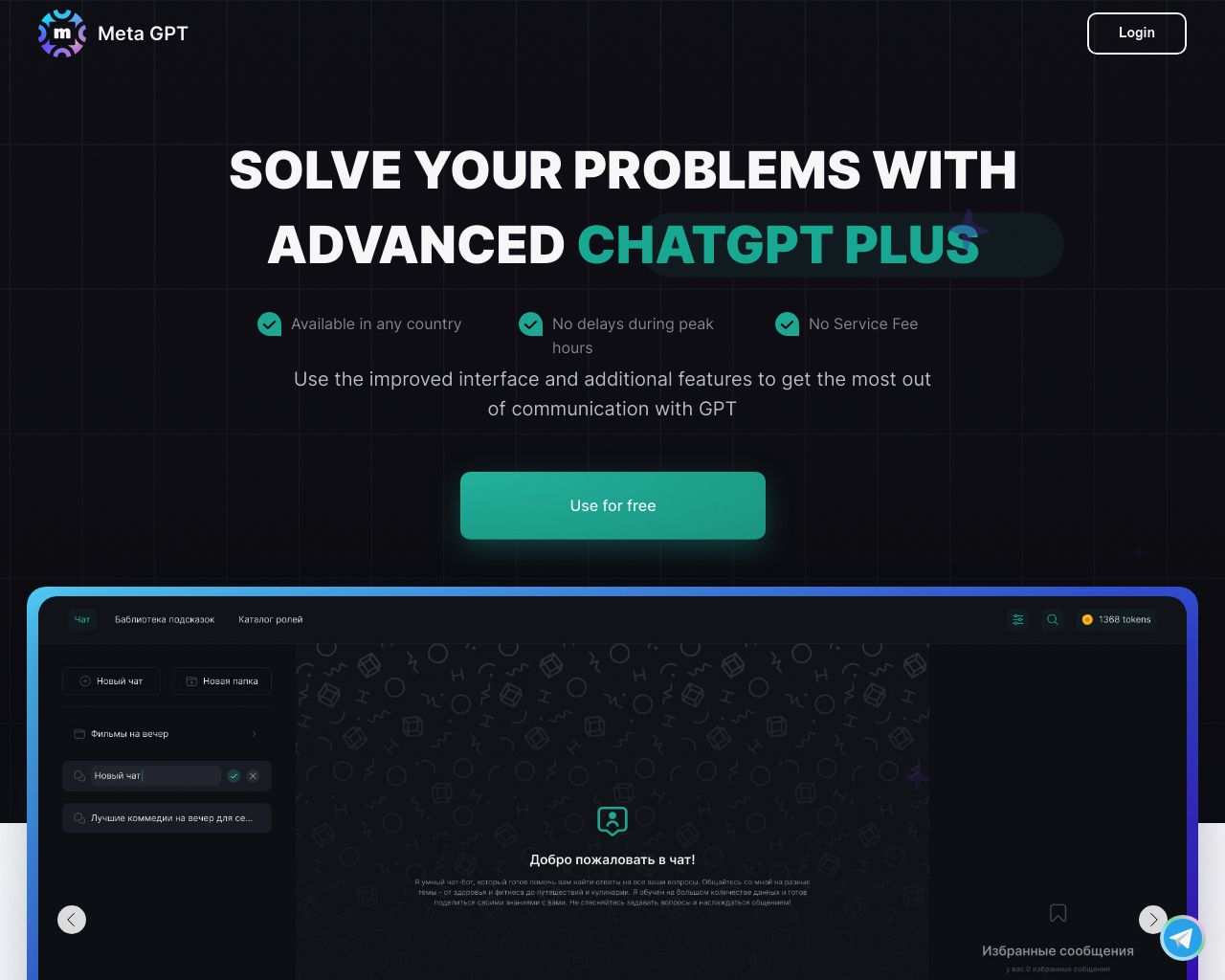Bardeen AI vs. MetaGPT: Comparing AI Automation Approaches
AI platforms transform how businesses automate tasks and develop software. This comparison between Bardeen AI vs. MetaGPT explores their distinct approaches, highlighting strengths and limitations. Bardeen AI offers user-friendly web automation, while MetaGPT tackles complex software projects through multi-agent collaboration.
We’ll examine how SmythOS addresses gaps in both platforms, providing a comprehensive solution for diverse AI development needs. Whether you’re a developer seeking advanced integrations, a business leader focused on scalability, or a non-technical user looking for accessible tools, this analysis will help you navigate the AI landscape and choose the right platform for your goals.
Bardeen AI Overview
Bardeen AI empowers users to automate web-based tasks through a no-code platform delivered as a Chrome extension. The software focuses on streamlining repetitive workflows, allowing users to create custom automations called Playbooks without programming expertise.


At its core, Bardeen offers a visual workflow builder where users can drag and drop actions to construct automations. The platform includes a library of pre-built actions for popular apps like Gmail, Google Sheets, and LinkedIn, enabling quick integration with existing tools. Bardeen enhances these capabilities with AI-powered features such as text classification, data extraction, and text generation, leveraging models like GPT-3.
Bardeen offers a visual workflow builder where users can drag and drop actions to construct automations… enabling quick integration with existing tools.
One of Bardeen’s standout features is its emphasis on human-in-the-loop interaction. Users can actively guide automations, validate data, and provide inputs when needed. This approach allows for more nuanced and context-aware automations, bridging the gap between fully autonomous systems and manual processes.
While Bardeen excels in personalized web automation, it has limitations. The platform lacks capabilities for independent agents, extensive scalability, or complex deployment options. It’s primarily designed for browser-based robotic process automation (RPA) with human oversight, making it less suitable for fully hands-off, large-scale enterprise automation needs.
Bardeen’s vision centers on democratizing automation by enabling users to build workflows tailored to their specific needs without coding expertise. This aligns with the broader trend of evolving automation from pure efficiency gains to augmenting human capabilities through AI participation. For businesses and individuals seeking to optimize repetitive web-based tasks with a balance of automation and human input, Bardeen offers a compelling solution.
Bardeen’s vision centers on democratizing automation by enabling users to build workflows tailored to their specific needs without coding expertise.
MetaGPT Overview
MetaGPT offers a groundbreaking multi-agent collaborative framework for complex software development. This open-source platform encodes human Standard Operating Procedures into Large Language Model agents, enabling autonomous problem-solving at scale.


MetaGPT’s framework features specialized agents that mirror real-world software development roles. A boss agent oversees product managers, architects, engineers, and QA specialists. These agents access a shared environment and global memory pool, facilitating efficient data retrieval and context-aware operations.
MetaGPT offers a groundbreaking multi-agent collaborative framework for complex software development… enabling autonomous problem-solving at scale.
The platform excels at developing intricate software systems, from CRUD applications to data analysis jobs and Python games. MetaGPT outperforms many competitors in code quality and adherence to expected development processes. A single prompt can initiate an entire software project, handling everything from competitive analysis to API creation and documentation.
While MetaGPT offers powerful capabilities, it lacks some features found in other platforms. The system does not provide hosted agents or separate development and production environments. It also lacks a visual builder or no-code editor, which may limit accessibility for non-technical users. Additionally, MetaGPT does not offer persistent memory and context across sessions, potentially impacting long-term learning and adaptability.
MetaGPT integrates with foundational AI services and supports various APIs, enhancing its versatility. However, it does not offer direct deployment options as an API, webhook, or site chat. The platform’s scalability and performance metrics for large-scale enterprise use remain unclear, potentially limiting its appeal for some business applications.
Feature Comparison
Bardeen AI and MetaGPT offer distinct approaches to AI-powered automation and development. Bardeen AI provides a user-friendly no-code platform for web-based task automation, while MetaGPT focuses on complex software development through multi-agent collaboration.
Bardeen AI excels in its visual workflow builder and pre-built integrations with popular apps, making it accessible to non-technical users. However, it lacks capabilities for autonomous agents, multi-agent collaboration, and complex deployment options. In contrast, MetaGPT shines in its ability to handle intricate software projects using specialized AI agents that mirror real-world development roles. MetaGPT outperforms in code quality and adherence to development processes but does not offer hosted agents or visual building tools.
Both platforms have gaps in core components and security features. Bardeen AI lacks persistent memory and context across sessions, while MetaGPT does not provide separate development and production environments. Neither platform offers robust data encryption or IP control features, which may limit their appeal for enterprise-level security requirements. SmythOS addresses these gaps by providing hosted agents, separate environments, persistent memory, and advanced security features, making it a more comprehensive solution for diverse AI development needs.
| Bardeen AI | MetaGPT | SmythOS | |
|---|---|---|---|
| CORE FEATURES | |||
| Hosted Agents (Dev, Production) | ✅ | ❌ | ✅ |
| Visual Builder | ✅ | ❌ | ✅ |
| No-Code Options | ✅ | ❌ | ✅ |
| Memory & Context | ❌ | ✅ | ✅ |
| Autonomous Agents | ❌ | ✅ | ✅ |
| Debug Tools | ❌ | ❌ | ✅ |
| Multimodal | ❌ | ❌ | ✅ |
| Problem-Solving Capabilities | ❌ | ✅ | ✅ |
| Multi-Agent Collaboration | ❌ | ✅ | ✅ |
| Audit Logs for Analytics | ❌ | ❌ | ✅ |
| SECURITY | |||
| Constrained Alignment | ❌ | ✅ | ✅ |
| Data Encryption | ✅ | ❌ | ✅ |
| OAuth | ✅ | ❌ | ✅ |
| IP Control | ❌ | ❌ | ✅ |
| COMPONENTS | |||
| Foundation AIs | ❌ | ✅ | ✅ |
| Huggingface AIs | ❌ | ✅ | ✅ |
| Zapier APIs | ❌ | ❌ | ✅ |
| Classifiers | ✅ | ❌ | ✅ |
| Logic | ❌ | ❌ | ✅ |
| Data Lakes | ❌ | ❌ | ✅ |
| DEPLOYMENT OPTIONS (EMBODIMENTS) | |||
| Deploy as API | ❌ | ✅ | ✅ |
| Deploy as Webhook | ❌ | ❌ | ✅ |
| Staging Domains | ❌ | ❌ | ✅ |
| Production Domains | ❌ | ✅ | ✅ |
| API Authentication (OAuth + Key) | ❌ | ❌ | ✅ |
| Deploy as Site Chat | ❌ | ❌ | ✅ |
| Deploy as Scheduled Agent | ✅ | ❌ | ✅ |
| Deploy as GPT | ❌ | ✅ | ✅ |
| DATA LAKE SUPPORT | |||
| Hosted Vector Database | ❌ | ❌ | ✅ |
| Sitemap Crawler | ❌ | ❌ | ✅ |
| YouTube Transcript Crawler | ✅ | ❌ | ✅ |
| URL Crawler | ❌ | ❌ | ✅ |
| PDF Support | ✅ | ❌ | ✅ |
| Word File Support | ❌ | ❌ | ✅ |
| TXT File Support | ❌ | ✅ | ✅ |
Best Alternative to Bardeen AI and MetaGPT
SmythOS emerges as the superior alternative to Bardeen AI and MetaGPT, offering a comprehensive agentic AI automation platform. We provide a robust solution that excels in ease of use, feature richness, and versatility across unlimited use cases. SmythOS bridges critical gaps left by competitors, delivering hosted agents for both development and production environments.
Our visual builder and no-code options empower users of all technical backgrounds to create sophisticated AI solutions effortlessly. Unlike Bardeen AI’s limited web automation focus or MetaGPT’s complex software development approach, SmythOS enables seamless creation and deployment of AI agents for diverse applications. We offer unparalleled flexibility with multimodal capabilities, advanced problem-solving features, and support for multi-agent collaboration — areas where both Bardeen AI and MetaGPT fall short.
SmythOS also prioritizes security and scalability, providing data encryption, OAuth integration, and IP control missing from competitor offerings. Our platform’s extensive deployment options, including APIs, webhooks, and scheduled agents, far surpass the limited choices of Bardeen AI and MetaGPT. With SmythOS, users gain access to a powerful data lake ecosystem supporting various file formats and crawling capabilities, enhancing the scope and efficiency of AI agent operations.
By choosing SmythOS, businesses and developers unlock the full potential of AI automation, benefiting from a feature-rich, secure, and infinitely scalable platform designed to meet evolving technological demands.
SmythOS emerges as the superior alternative to Bardeen AI and MetaGPT, offering a comprehensive agentic AI automation platform… that excels in ease of use, feature richness, and versatility across unlimited use cases.
Conclusion
Bardeen AI and MetaGPT offer unique approaches to AI-powered automation and development. Bardeen AI excels in user-friendly web task automation, while MetaGPT shines in complex software development through multi-agent collaboration. However, both platforms have limitations that SmythOS effectively addresses.
SmythOS stands out as the superior choice, offering a comprehensive suite of features that combine the strengths of Bardeen AI and MetaGPT while filling their gaps. With hosted agents, separate development and production environments, and a visual builder, SmythOS provides the accessibility of Bardeen AI alongside the complex problem-solving capabilities of MetaGPT. Our platform’s robust security features, including data encryption and OAuth support, make it suitable for enterprise-level applications.
SmythOS’s versatility truly sets it apart. From AI agents and multi-modal interactions to data lake support and scalable deployment options, we offer a complete ecosystem for AI development and automation. Whether you’re a developer seeking advanced API integrations, a business leader focusing on scalability and compliance, or a non-technical user looking for no-code solutions, SmythOS caters to your needs.
Ready to experience the future of AI development and automation? Create a free SmythOS account today and discover how our platform can transform your workflows, boost efficiency, and drive innovation across your organization.
Last updated:
Disclaimer: The information presented in this article is for general informational purposes only and is provided as is. While we strive to keep the content up-to-date and accurate, we make no representations or warranties of any kind, express or implied, about the completeness, accuracy, reliability, suitability, or availability of the information contained in this article.
Any reliance you place on such information is strictly at your own risk. We reserve the right to make additions, deletions, or modifications to the contents of this article at any time without prior notice.
In no event will we be liable for any loss or damage including without limitation, indirect or consequential loss or damage, or any loss or damage whatsoever arising from loss of data, profits, or any other loss not specified herein arising out of, or in connection with, the use of this article.
Despite our best efforts, this article may contain oversights, errors, or omissions. If you notice any inaccuracies or have concerns about the content, please report them through our content feedback form. Your input helps us maintain the quality and reliability of our information.
